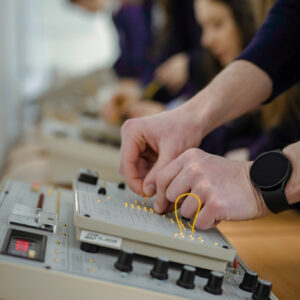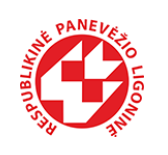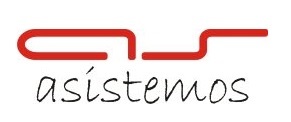Electromechanics
 Study mode and duration time: full-time (3 years)
Study mode and duration time: full-time (3 years)
Study programme is carried out: Panevėžio kolegija/State Higher Education Institution, Faculty of Technology Sciences
Degree and professional qualification: Engineering Sciences
Volume of the study programme in credits: 180 ECTS credit
Objective(s) of the study programme: to equip professionals of information systems being able to analyse the information needs of enterprises and organizations, to plan, design, program, implement, update and maintain information systems.
The aim of Electromechanical study programme is preparation of mechanical engineers who will be able to design various technical products using computer aided design programmes, select process plans for their manufacturing, engineers who will have knowledge about structure and operating principles of various technological equipment and will be able to maintain this equipment.
 Program has been awarded the “Investor’s Spotlight” quality mark!
Program has been awarded the “Investor’s Spotlight” quality mark!
Please check Rules for Admission for foreigners
| General Subjects |
|---|
| Basics of Enterpreneurship |
| Mechanical Engineering and Electrical Engineering Study Fields Subjects |
| Physics |
| Applied Mathematics |
| Materials Science |
| Engineering and Computer Drawing |
| Environmental and Human Safety |
| Mechanical Engineering Study Fields Subjects |
| Theoretical Mechanics and Theory of Machines |
| Hydraulics and Pneumatics |
| Materials Production Processes, tools and Equipment |
| Electrical Engineering Study Fields Subjects |
| Basics of Electrotechnics |
| Electric Equipment |
| Practices |
| Cognitive Practice |
| Electrical Practice |
| General Subjects |
|---|
| Professional Foreign Language |
| Mechanical Engineering and Electrical Engineering Study Fields Subjects |
| Measurements |
| Mechanical Engineering Study Fields Subjects |
| Mechanics of Materials |
| Machine Elements |
| Computer Aided design (CAD) |
| Computer Aided Engineering (CAE) |
| Computer Numerical Control Machine-tools (CNC) |
| Electrical Engineering Study Fields Subjects |
| Automatic Control and Controllers |
| College Established and Optional Subjects |
| Two optional subjects from a list of subjects approved by order of the director: PD1, PD2 |
| Practices |
| Design Practice |
| CNC Practice |
| General Subjects |
|---|
| Professional Language Culture |
| One of the alternatives: Psychology A1 / Sociology A1 / Professional Ethics A1 |
| Mechanical Engineering and Electrical Engineering Study Fields Subjects |
| Applied Research |
| Mechanical Engineering Study Fields Subjects |
| Vomputerized Production Preparation (CAM) |
| Sustainable Production |
| Electrical Engineering Study Fields Subjects |
| Automation of Technological Processes |
| Practices |
| Production Practice |
| Final Practice |
| Integrated Final Project |
At PANKO, studies are built around practice, innovation, and real career opportunities.
- Practice-oriented studies – close cooperation with employers and the use of modern technologies prepare you for today’s job market.
- Small study groups – personal attention and individual support for every student.
- Hands-on learning – modern laboratories, advanced equipment, and real business projects.
- Lecturers with real-world experience – industry professionals from different cities who share up-to-date, practical knowledge.
- Extensive network of business partners – nearly 300 cooperation agreements ensure high-quality internships and open doors to future employment.
- International opportunities – study or complete internships abroad with the Erasmus+ programme for up to 12 months during your studies.
- Comfortable student life – a college dormitory located just a 10-minute walk from the city center.
- A strong and supportive community – lecturers, students, and partners working together to create success.
At PANKO, you don’t just gain knowledge – you turn it into real experience, international exposure, and strong career prospects.
Join the PANKO community — because HERE is the start of YOUR career!
Opportunities for international studies: students of the programme have the opportunity to study according to the ERASMUS student exchange program.
Learning outcomes:
-
Knows the general patterns of natural science, social sciences, mathematics and engineering and can apply them to create sustainable engineering solutions.
2. Knows the most important concepts of electromechanical engineering, understands their contents and is able to apply this knowledge and understanding to solve problems of electromechanical engineering, applying creatively known methods, experimental and production equipment.
3. Is able to find the necessary professional information and carry out experiments necessary for solving engineering tasks, process their results and present practical conclusions of these results.
4. Is able to work with equipment used in the field of mechanical engineering.
5. Ability to select and apply theoretical and applied engineering knowledge in the formulation and execution of design tasks according to defined requirements.
6. Is able to understand design techniques and apply them.
7. Able to select sustainable engineering solutions and tools and equipment to implement these solutions.
8. Ability to understand the ethical, environmental and commercial circumstances of engineering activities, the impact of engineering decisions on society and the environment, adhere to the norms of professional ethics and engineering, understand responsibility for engineering performance.
9. Is able to understand the principles of engineering activities, knows the basic requirements of work and fire safety.
10. Able to solve engineering tasks by working independently and in a team and interacting with the engineering community.
11. Is able to understand the importance of individual lifelong learning and to prepare for it.





























